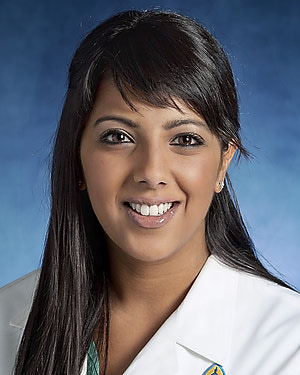Research Lab Results
-
Ariel Green Lab
Research in the Ariel Green Lab focuses on informing and improving decisions surrounding the use of invasive medical technologies for older adults with complex medical diseases. Our long-term goals are to conduct epidemiologic research, create public health initiatives, and help shape policies that improve the lives of older adults.
-
Nadia Hansel Lab
Research in the Nadia Hansel Lab investigates the clinical, pathophysiologic and public health aspects of pulmonary diseases, with a focus on asthma and chronic obstructive pulmonary disease (COPD). We have explored how environmental exposures, nutrition and diet, comorbidity and other factors influence the outcomes of diseases such as asthma and COPD.
-
Bhakti Hansoti Lab
Research in the Hansoti Lab centers on the intersection of public health interventions for vulnerable populations and emergency department care. The lab employs implementation science methodologies, with a particular emphasis on mixed-methods research to design, develop, and evaluate innovative, evidence-based strategies that support socially vulnerable patients.
In South Africa, the team is pioneering strategies to enhance HIV prevention and intervention delivery within emergency departments, focusing on improving HIV service delivery for patients missed within the health system and delivering preventative care strategies to patients at high risk of HIV acquisition. These efforts are concentrated at Tygerberg Hospital and Gugulethu Clinic, in partnership with the Desmond Tutu HIV Foundation.
Domestically, the lab conducts research on opioid use disorder (OUD), specifically addressing post-discharge health system challenges related to linkage to care and retention for patients prescribed medications for opioid use disorder (MOUD). This includes addressing social determinants of health to strengthen HIV services for patients who present to the ED.
Additionally, Dr. Hansoti has a dedicated focus on surveillance strategies for high-consequence pathogens in emergency departments. She serves as the Principal Investigator for the Clinical Characterization Protocol for Severe Emerging Infections (CCPSEI) and manages cohorts for both COVID-19 and mpox, in collaboration with experts in public health, epidemiology, and infectious diseases from the Johns Hopkins School of Public Health.

-
Richard Chaisson Lab
Research in the Richard Chaisson Lab primarily examines tuberculosis and HIV infection, with specific focus on global epidemiology, clinical trials, diagnostics and public health interventions. Our recent research has involved evaluating a molecular diagnostic test for tuberculosis in HIV patients; observing TB responses during treatment of pulmonary tuberculosis; and examining antiretroviral therapy adherence, virologic and immunologic outcomes in adolescents compared with adults in Southern Africa.
-
Amita Gupta Lab
The Amita Gupta Lab focuses on drug trials to prevent and treat HIV, tuberculosis (TB) and other co-morbidities in adults, including pregnant women and children who reside in low-income settings. We also conduct cohort studies assessing HIV, inflammation and nutrition in international settings; TB in pregnancy; and risk factors for TB in India (CTRIUMPH). We collaborate with several faculty in the Center for TB Research, Division of Infectious Diseases and the School of Public Health.
-
David Dowdy Lab
The David Dowdy Lab conducts research in the field of infectious disease epidemiology. We use an interdisciplinary approach that involves infectious disease modeling, health economics, classical epidemiology, and operational and implementation science. Much of our work explores the diagnosis and treatment of tuberculosis. We also have a longstanding interest in “translational epidemiology,” with a goal of developing methods to help medical professionals who use epidemiological data make decisions that are in the best interest of patients and public health.
-
Elizabeth Selvin Lab
The Elizabeth Selvin Lab examines the intersection of epidemiology, clinical policy and public health policy. One of our key goals is to use the findings of epidemiologic research to inform the screening, diagnosis and treatment of diabetes, cardiovascular disease and kidney disease. Much of our work looks at biomarkers and diagnostics related to diabetes and diabetes complications. Our findings — linking hemoglobin A1c (HbA1c) to diabetic complications and identifying the role of A1c in diabetes diagnosis — have influenced clinical practice guidelines.
-
Larry Chang Lab
Research in the Larry Chang Lab focuses on innovative, multidisciplinary and pragmatic approaches to impacting the HIV/AIDS pandemic. Our research investigates ways to improve HIV/AIDS care in low- and middle-income settings through strategies that include quantitative methods, qualitative methods, community-based trial designs, and behavioral science and economic evaluations. In addition, we research mobile technologies for health (mHealth) strategies for improving global public health and clinical care, including novel applications for intimate-partner violence intervention, dengue surveillance, and HIV care, surveillance and prevention.
-
Maternal-Fetal Medicine Research
The Division of Maternal-Fetal Medicine is engaged in clinical, basic bench and epidemiological research as one of its primary missions. Our strength lies in the expertise and diverse interests of our faculty, as well as in the collaborations with multiple other disciplines and departments throughout the School of Medicine, The Bloomberg School of Public Health, and the School of Biomedical Engineering. The strong research infrastructure of the Johns Hopkins University forms a solid foundation for the success of our integrated research program for Maternal-Fetal Medicine. -
Wu Lab
Dr. Wu leads a multi-disciplinary team with collaborators from the Bloomberg School of Public Health, JHU Whiting School of Engineering, and JHU Krieger School of Arts and Sciences. She conducts ongoing investigations with the Multicenter AIDS Cohort Study and Women’s Inter-agency Health Study. Her lab’s goals are to develop, implement, and validate novel imaging-based metrics of cardiac structure and function to improve risk prediction and stratification at the individual patient-level. Research Focuses: Predictors of Sudden Cardiac Death by Magnetic Resonance Imaging Subclinical myocardial disease in people living with HIV Individualized risk prediction Cardiac structural and mechanical modeling

